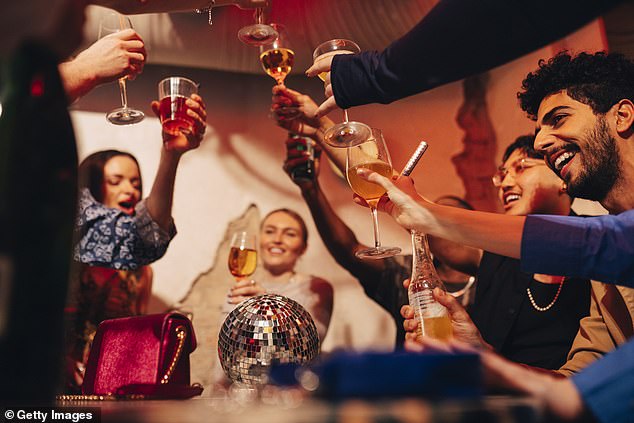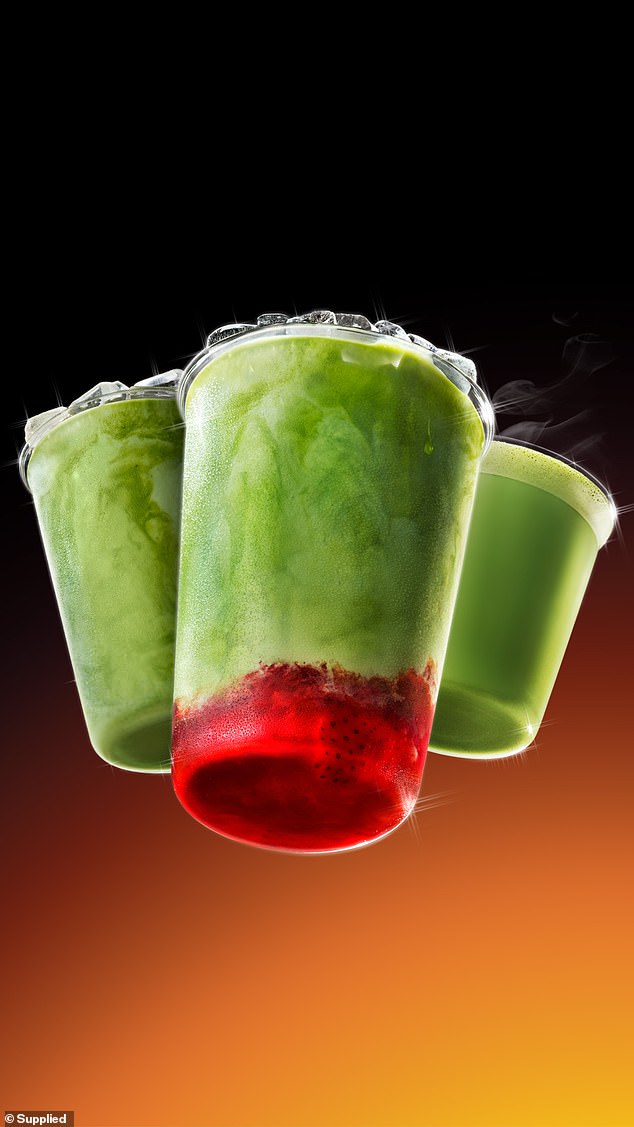I was only supposed to be going for one. It’s always that way, isn’t it, when it comes to after-work drinks.
‘Let’s just have a quick glass of wine,’ someone will say as they put on their coat, and though in my case it was usually more like a quick bottle (or two), I set out to the pub that evening fully intending to only have a small tipple. I needed an early night, after all, so I could be fresh for a big interview I was doing the next day.
But one drink turned to two, two turned to three, and then someone suggested going into central London to a bar. What can I say? I was 25. I calculated that as long as I got to bed by 1am, I’d have a solid seven hours’ sleep and be good to go the next morning. It would be fine! Off we all went, and the last thing I remember was downing shots of tequila in a bar in Soho with the head of the legal department.
Very suddenly it was mid-morning the next day, and I was coming round in a stranger’s bed, with a sore head and 27 missed calls from my boss on my phone. He had been forced to send someone else to do the interview, and was about to call the police to check I was actually alive.
I grovelled an apology, made up something about food poisoning, and hoped to God I hadn’t used this excuse on him before.
Because, sadly, this was not an isolated incident – though it was one of the few times I really dropped the ball and failed to make it into the office at all after ‘just one post-work drink’.
How many grandparents would I kill off, how many bathrooms would I pretend to flood, before someone finally twigged the real reason I was frequently late for work? Quite a few, as it turned out.
It was 2005 and my sobriety was still a whopping 12 years away, (at which point, my brain would still struggle to work out how I, a middle-class professional, wound up sitting in a church hall saying the dreaded words: ‘My name’s Bryony, and I’m an alcoholic.’)

‘One drink turned to two, two turned to three, and then someone suggested going into central London to a bar,’ writes Bryony Gordon
Indeed, as I sit here writing this now, it seems extraordinary to me that nobody (myself included) could see I had an alcohol problem. Workplace drinking was so normalised I was able to hide in plain sight, bingeing booze under the guise of team-building or morale-boosting.
Somewhat naively, I’d assumed things had improved since I sobered up eight-and-a-bit years ago. So I was fascinated to read this week that experts are calling for a rise in alcohol duty, in an attempt to tackle the ‘productivity crisis’ caused by Britain’s culture of workplace drinking.
According to a study by the Institute for Public Policy Research (IPPR), alcohol harm caused by boozing after work is now ‘a national economic problem’, with a third of workers admitting they’d called in sick after drinking with colleagues in the last year.
The IPPR suggested the Chancellor uses next month’s Budget to announce a minimum unit price on all alcohol in England, as is already the case in Scotland and Wales.
I’d go one further and call for a full-on ban on workplace drinks, a bit like those contracts that prohibit workplace romances (the young folk don’t need either now that they’ve got Tinder and Bumble). It’s not that I blame my alcoholism on after-work drinks, more that the British tradition of convivially ‘letting off steam’ after a hard day at the office allowed my illness to thrive.
In the Plumbers Arms, I could convince myself my drinking was the solution, not the problem. After all, it enabled me to chat to senior staff members I’d never normally get access to during the day, and surely they’d be impressed by my dedication, the fact I was still talking shop at a drinks event long after most (sane) people had gone home?
And because I mostly managed to make it into work the next day, working through hangovers and manipulating my way out of the scrapes I frequently found myself in, I convinced everyone I was merely an average office worker who enjoyed a bevvy like everyone else. In actual fact, I was what many people term a ‘functioning alcoholic’ – a polite way of describing an alcoholic who hasn’t yet been found out.
I used to look down on the people who left work drinks early to go to the theatre – or, even sadder, to catch the train back to their families. Boring! The only time I ever made it home at a half-decent hour was because I’d run out of amenable colleagues to drink with and needed to get to the off-licence near my flat to stock up on booze before it closed.
I’d scurry past the old homeless man who sat on a street corner drinking from a bottle inside a paper bag, but I now see the only thing that differentiated me from him was time. If I’d carried on drinking the way I did, I’d have eventually lost my job, and my home, and everything I held dear.
I feel extremely lucky to have extracted myself from a life completely soaked in booze. So if you’re reading this and also struggling to have ‘just one drink’ in the pub after work, please know it’s never too late to call time on the apparently ‘social’ habit of drinking alcohol. A social habit that so often leaves people cut off from the world, despairing and alone.
Butlers in the buff? How do they still exist?

Liverpool-based Hunky Butler Service supplies topless waiters to hen parties
It’s strategically placed aprons at dawn. Two companies that specialise in providing topless waiters for hen parties are in a legal battle over the term ‘butlers in the buff’, with one firm claiming it has trademarked the term so nobody else can use it. Having once endured an excruciating portion of a hen do where drinks were served by an almost-naked man – and everyone stood around wishing he’d hurry up and put some clothes on – I’m just amazed such companies still exist.
What do the major fashion weeks and political party conferences have in common? Not only do they happen at the same time, but they also take themselves way too seriously, convinced the eyes of the world are on them when most of us couldn’t give two hoots what’s going on at the conference hall in Manchester, or the front row in Paris.
Sorry, girls do like nice boys
New research has found that nice guys don’t actually end up getting the girl, as Hollywood would have us think. Swedish sociologists have discovered that kind, polite men are less likely to be in relationships than their more assertive counterparts, which I find terribly disappointing. Having traded in a lifetime of useless men for a kind, patient husband who values commitment, I can heartily recommend the swap. For the sake of their own peace of mind, I do so wish women would knock the tired old bad-boy trope on the head once and for all.
And my favourite on Celebrity Traitors is…

The first episode of the new series of Celebrity Traitors aired yesterday
Call me insane, but I’ll happily pay the licence fee as long as the Beeb keeps producing priceless entertainment like The Celebrity Traitors. Alan Carr’s reaction to being selected as a traitor was hilariously relatable (he surely can’t be long for the castle), Claudia Winkleman’s wardrobe was, as ever, a star in its own right, but for me the stand-out contestant on the series is recently retired rugby hero Joe Marler. He’s hilarious – England’s loss is definitely light entertainment’s gain.
Lay off Taylor’s glittery magic!

‘With a world full of po-faced opinions, I’d say we need Taylor’s glittery magic more than ever,’ writes Bryony
It’s a week since Taylor Swift released her 12th studio album, The Life Of A Showgirl, and the hot takes won’t stop coming. How can Swift find the time to write a song about falling in love, but not to speak up about the situation in Gaza, asks one commentator. Should a 35 year old really be making a juvenile pop album, asks another. Goodness me – with a world full of po-faced opinions like this, I’d say we need Taylor’s glittery magic more than ever.









